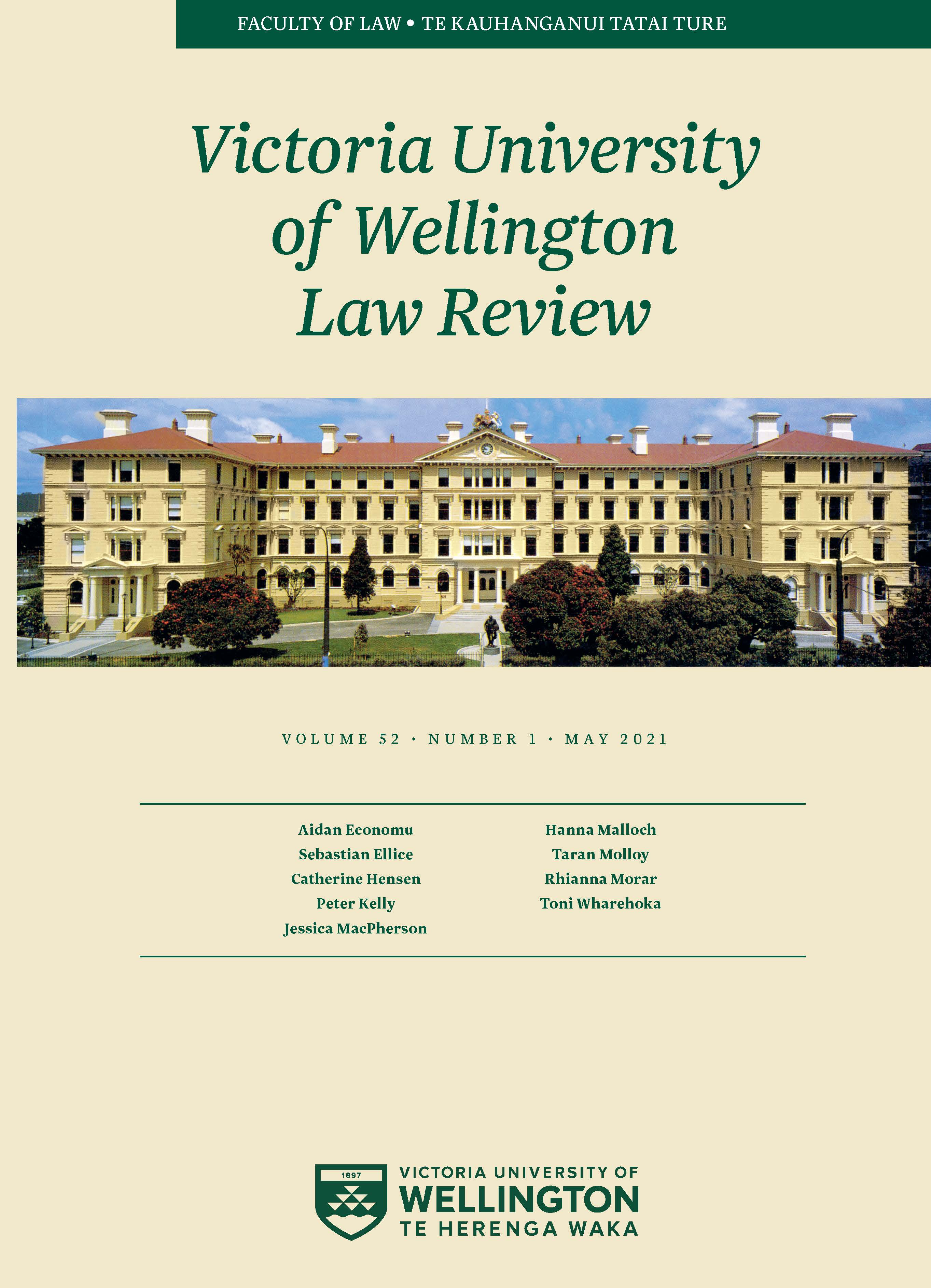Contracting out Rules for Family Income Sharing Arrangements: Providing Certainty and Protecting the Vulnerable
DOI:
https://doi.org/10.26686/vuwlr.v52i1.6846Abstract
Despite equal division of assets at the end of a relationship, residual economic disparity often remains. This is especially common when one partner has left the workforce to care for children. Addressing such divergent economic prospects at the end of long-term relationships has been a perennial policy challenge. In 2019, the Law Commission completed its review of the Property (Relationships) Act 1976 (PRA). The Commission recommended replacing the current economic disparity compensation and maintenance regimes with an income pooling mechanism: Family Income Sharing Arrangements (FISAs). It also recommended that couples be able to contract out of FISAs. This article explores the rationale for changing the current regime and the conceptual underpinnings of the proposed FISA regime, using human capital as a framework. The article proposes a detailed policy regime for FISA contracting out. The proposed rules consider the needs of couples with children, where a partner has left the labour force, or where lived reality has not met the couple's ex ante expectations. The resulting rules meet the policy goal of allowing couples to contract out of FISAs, but only where their contract causes no hardship. Additional disclosure is also recommended for contracting out of the other provisions of the PRA, with greater deference recommended for such private arrangements as a result.
Downloads
Downloads
Published
How to Cite
Issue
Section
License
Authors retain copyright in their work published in the Victoria University of Wellington Law Review.


